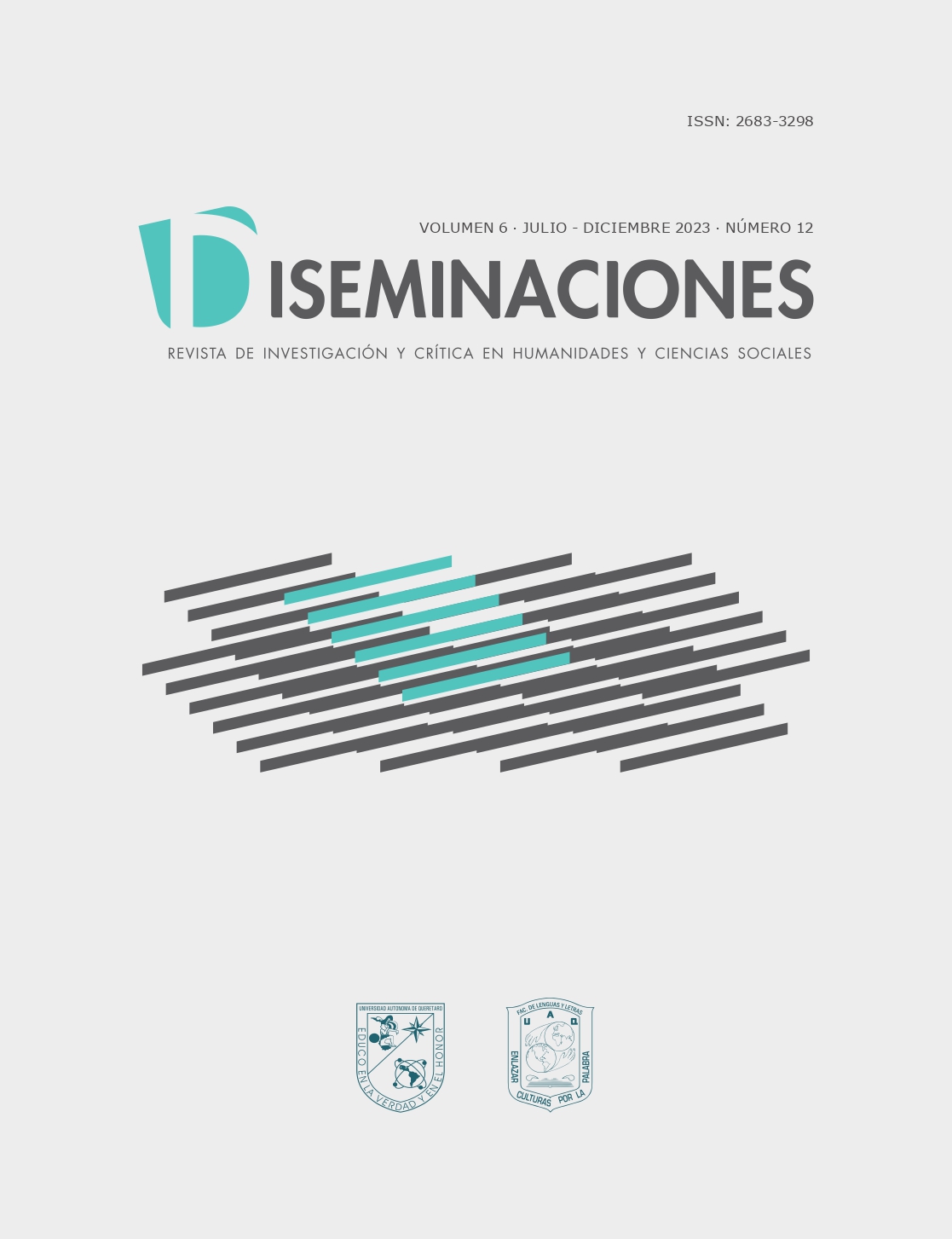Abstract
Much ink and letters have managed to emerge in what we know as Latin America (originally Abya Yala). Words that have emerged from the literary journeys that have been configured in everyday life in all these intercultural and hybrid processes in which poetic warps are woven to describe the world of Afro life. That is why this writing is committed to an analysis of poetic writings that give an account of a place, of poets who are committed to a content where the struggles, characters, languages, intercultural practices and ways of drawing worlds, trajectories can be seen. and feelings of “the nobodies and the nobodies.” From a methodological point of view, it is proposed to take extracts from the poetic work of the Colombians Mary Grueso, Ashanti Dinah and the author’s, to analyze poetic figures that describe the world of life. Likewise this investigation is interested in seeing in the written text all the literary poetic expressions that were once recognized from the oral tradition, but today we find in texts that circulate in different formats and aim to constitute literatures that center their universe on the Afro. Many writings inherited from the two great exponents of the Negritude movement such as the Caribbeans Aimé Césaire and Leopold Sedar Senghor, from whom some opening poems of the writing will be taken into account. And how this movement enables the arrival of what was later called Black Poetry in Latin America.
References
Bernabé, J.; Chamoiseau P. y Confiant, R. (2011). Elogio de la creolidad. Editorial Pontificia Universidad Javeriana: Bogotá.
Carriedo, L y Del Prado, J. (1999). “Presentación”. En S. Senghor, Obra poética. Madrid: Cátedra.
Castaño, P. y Carvallo, P. (2020). Antología poética antimilitarista en tiempos de pandemia y militarización. Editorial de la Red Antimilitarista de América Latina y el Caribe. https://ramalc.org/antologia-poetica-antimilitarista-en-tiempos-de-pandemia-y-militarizacion/
Césaire, A. (2014). Cuaderno 69 de Poesía Social: Aimé Césaire. Biblioteca Virtual Omegalfa. https://omegalfa.es/downloadfile.php?file=libros/cuaderno-de-poesia-critica-n-069-aime-cesaire.pdf
Dinah, A. (2019). Las semillas del Muntú. New York: New York Poetry Press.
García, J. (1982). La poesía negrista en el Ecuador. Esmeraldas: Banco Central del Ecuador.
Grueso, M. (2015). Cuando los ancestros llaman. Poesía afrocolombiana. Popayán: Universidad del Cauca.
Grueso, M. (1997). El otro yo que sí soy yo. Buenaventura: Marymar.
Grueso, M. (2003). El mar y tú. Poesía afrocolombiana. Cali: Feriva.
Jaramil lo, J. I. (2023a). Esquirlas. Cali: El Taller Blanco Ediciones.
Jaramillo, J. I. (2023b). “A nueve días de una nueva esperanza”. Revista Zegusqua, 1(2), pp. 6-11.
Krakusin, M. (2007). “Cuerpo y texto: el espacio femenino en la cultura afrocolombiana en María Teresa Ramírez, Mary Grueso Romero, Edelma Zapata Pérez y Amalia Lú Posso Figueroa”. En L. Ortiz. (Coord.), Chambacú, la historia la escribes tú (pp. 197-216). Madrid: Iberoamericana Vervuet.
Harvard University (6 de septiembre de 2020). Dinah Orozco Herrera - Afro-Latin American Research Institute. https://alari.fas.harvard.edu/directory/dinah-orozco-herrera/
Mansour, M. (2011). Identidades. Poesía negra de América. Cuba: Editorial Arte y Literatura.
Ollé-Laprune, P. (2008). Para leer a Aimé Césaire. México: Fondo de Cultura Económica
Palou, P.A. (2014). El fracaso del mestizo. México: Ariel.
Pérez Figuereo, J. (2020). “Mary Grueso Romero”. Afroféminas. https://afrofeminas.com/2020/07/20/mary-grueso-romero/
Sédar-Senghor, L. (1999). Obra poética. Madrid: Cátedra.
Zapata Olivella, M. (2007). “Manuel Zapata Olivella”. Abridor de caminos. https://manuelzapataolivella.co

This work is licensed under a Creative Commons Attribution 4.0 International License.
Copyright (c) 2023 Diseminaciones


